Fire Extinguishers for Fire Safety
Fire Extinguisher
Fire extinguishers are an essential equipment in any building or home fire safety plan. These products come in various sizes and types, with different ratings to extinguish specific types of fires. The pressure at which they operate and the level of sensitivity of their nozzle may vary depending on the brand and type. Some popular brands like Amerex offer rechargeable units that are easy to clean and replace. When selecting a fire extinguisher, it is important to look at its weight and size to ensure you can handle it safely. The fire department may also recommend specific types of grade fire extinguishers for your property based on the building’s material and appliance setup.
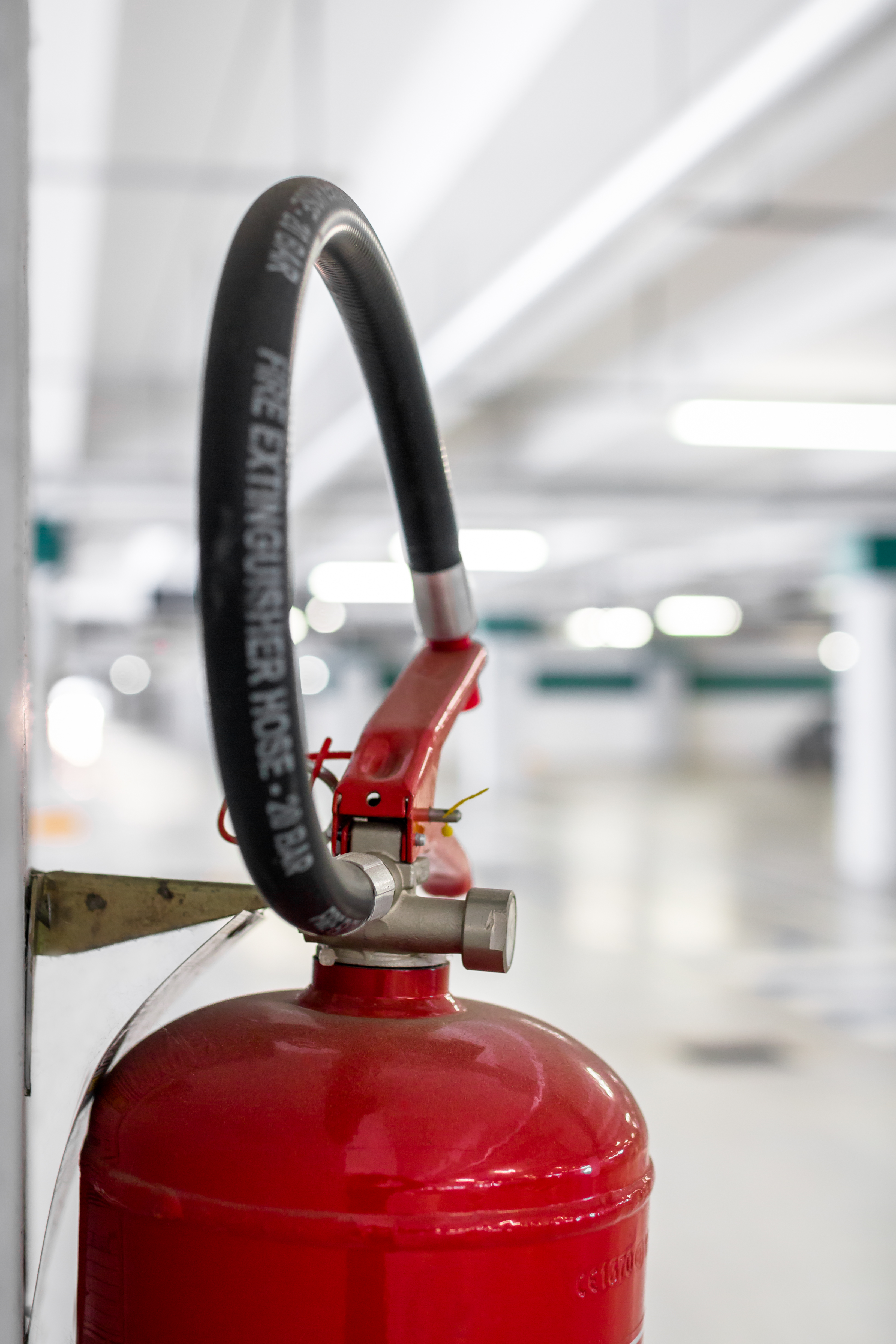
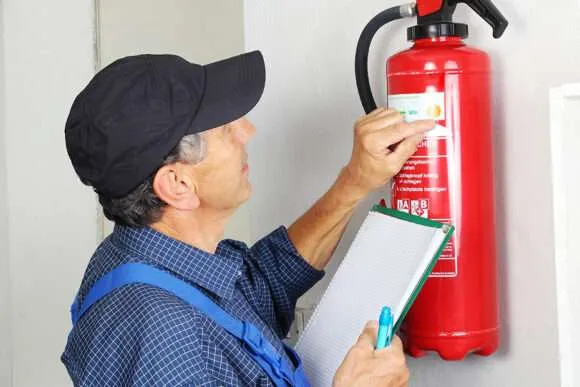
Fire Extinguisher Inspections
A fire emergency can occur at any time, and within any area in your Illinois or Indiana business. Fire protection systems are ideal for controlling a blaze and for ensuring that the proper authorities are notified as soon as possible. But fire extinguishers are what offer your employees and clients the greatest chance of avoiding harm.
Have your fire extinguishers been inspected lately? If not, it’s entirely possible that they will fail when you need them most. In addition to our refill and replacement services, we proudly provide comprehensive fire extinguisher inspection services.
How to use a fire extinguisher
Tips for using a fire extinguisher are essential knowledge for every full home. Fire extinguishers vary in size and agent depending on the type of fire they are meant to extinguish. When selecting a fire extinguisher, look for a multipurpose extinguisher that is effective against class b fires. Most homes should have an a-b-c rated extinguisher with a minimum rating of 12.5 lb. Make sure you carry the extinguisher to the fire using the hose and not the tool itself, as it may be sensitive. When you decide to use the extinguisher, remember the technique to sweep the extinguishing agent from side to side on the fire. For class b or c fires, a carbon dioxide extinguisher may be more appropriate. Always read the instructions on the extinguisher pack before attempting to use it.
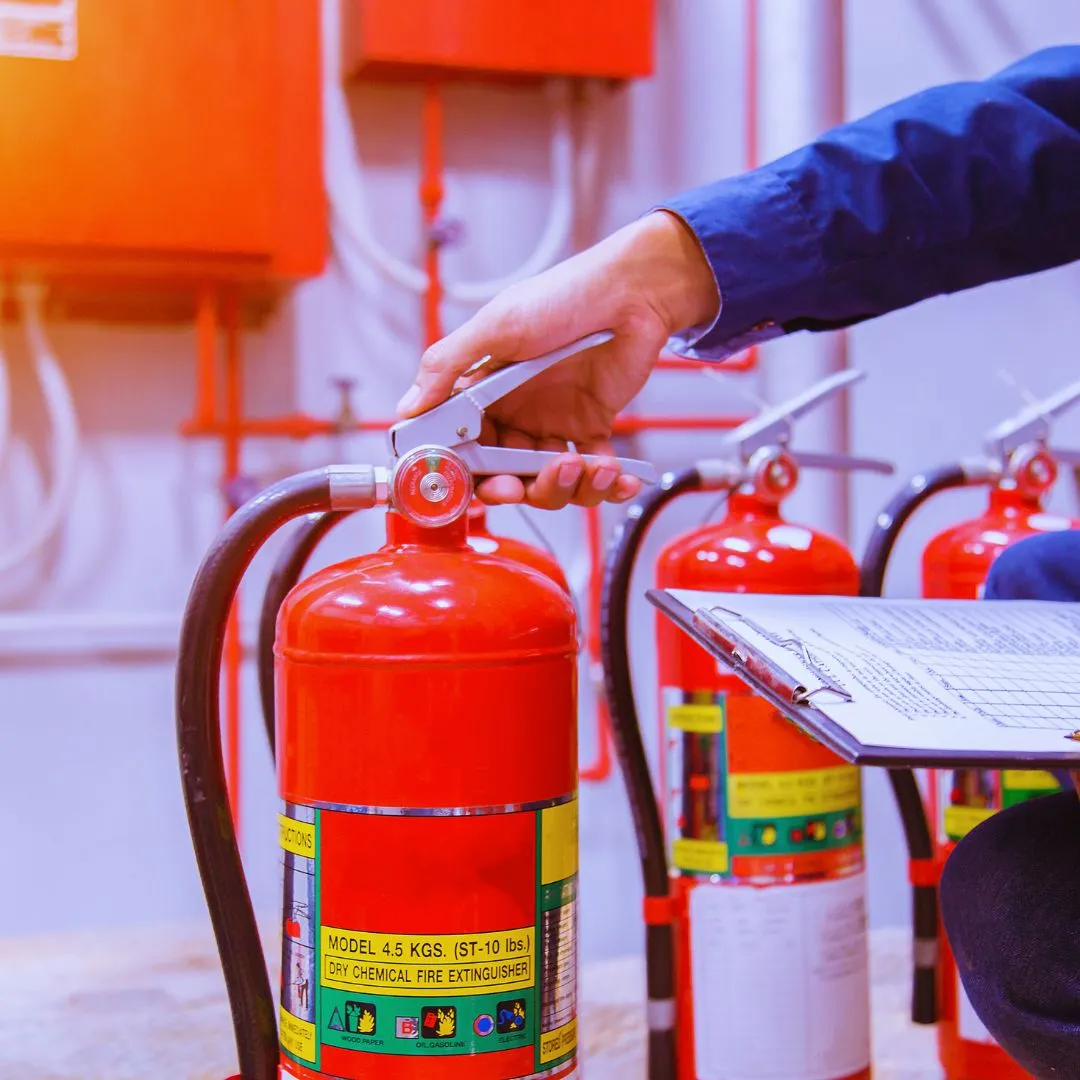
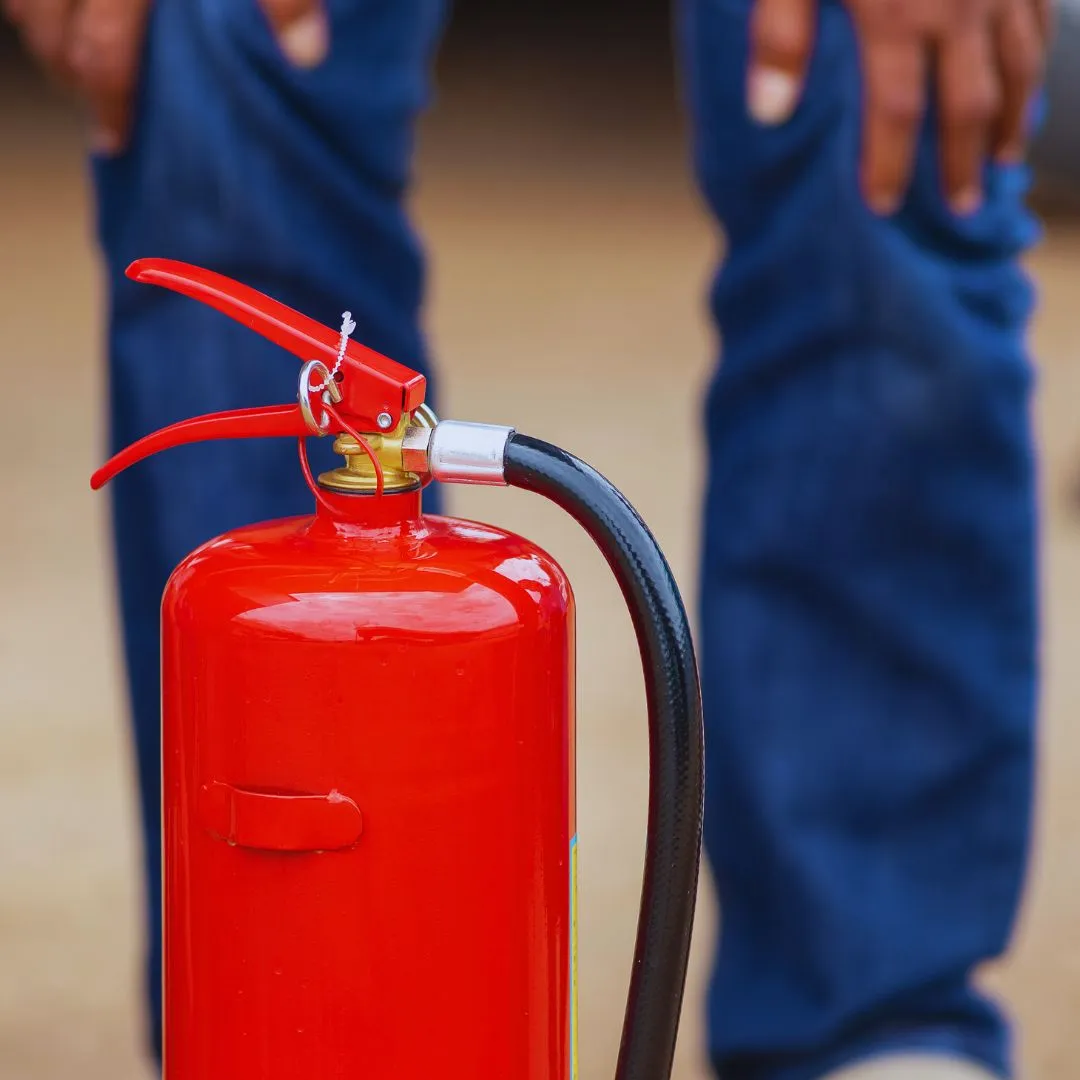
Portable Fire Extinguishers in Illinois
There are quite a few different fire extinguisher options to choose from. Pronto MS can help you choose the best extinguisher for your needs. An office with a server room and a bunch of computers is not going to need the same fire extinguisher as a commercial kitchen that regularly cooks with oil over flames. When looking for portable fire extinguishers in Illinois, it’s important to consider factors such as the type of fire you may encounter, the size and layout of your space, and any specific regulations or codes that may apply. Pronto MS offers a range of fire extinguisher options, including ABC dry chemical extinguishers, CO2 extinguishers, and more, all of which are designed to effectively combat different types of fires.
In addition to helping you select the right type of fire extinguisher for your needs, Pronto MS can also provide guidance on proper placement, maintenance, and training for your extinguishers. It’s important to ensure that your extinguishers are easily accessible, properly inspected and maintained, and that your staff is trained in how to use them effectively in the event of a fire.
By working with a reputable provider like Pronto MS, you can ensure that you have the right portable fire extinguishers for your Illinois-based business, providing you with peace of mind and the ability to respond quickly and effectively in the event of a fire emergency.
The Classes of Portable Fire Extinguishers
There are several types of fire extinguisher classes, such as Class A, Class B, and Class C, which are intended to extinguish different types of fires. It is important to be smart about where you shop for your fire extinguisher as not all brands may offer the same benefits or economical options. Understanding the label on the fire extinguisher and how to operate it, such as the P.A.S.S techniquesweeping the discharge, can help prevent further damage during a fire emergency. Keep your extinguisher in an easily accessible location, such as the garage or kitchen, to quickly alert and recharge it when needed.
◈ Class A – This is for common combustibles like wood, paper, and cloth.
◈ Class B – This is used for flammable liquids like gas, oil, kerosene, acetone, etc.
◈ Class C – This portable extinguisher is for electrical fires.
◈ Class D – This is used for flammable metals such as sodium, aluminum, titanium, etc.
◈ Class K – This is typically used in kitchens for grease fires.
Each of these portable fire extinguishers will have big letters on the sides to let you know which class it is. If your business might have a few of those kinds of fires, you have the ability to purchase an ABC extinguisher, which will put out any of the fires listed in the A, B, and C classes. It is important to have the appropriate fire extinguisher for the types of fires that are likely to occur in your particular environment. It is also important to have the proper training on how to use a fire extinguisher effectively in the event of a fire. Regular maintenance and inspection of fire extinguishers is also crucial to ensure they are in good working condition when needed.
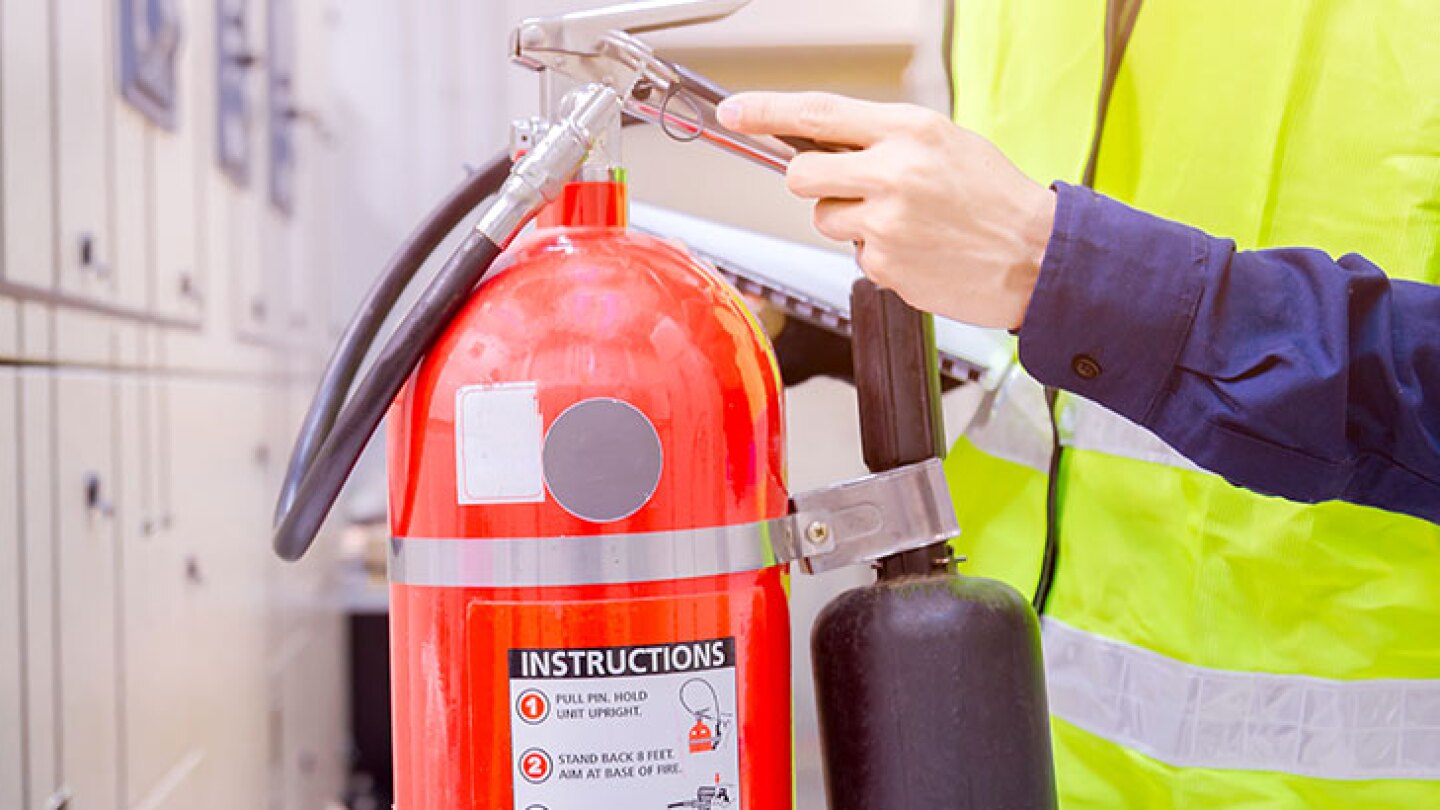
Fire extinguisher safety tips
Remember to aim the extinguisher at the base of the fire, rather than the flames themselves. This will help to smother the fire and prevent it from reigniting. Additionally, be sure to stand a safe distance away from the fire while using the extinguisher, and never turn your back on the fire. If the fire is too large or spreading rapidly, evacuate the building immediately and call the fire department. It’s important to regularly check the pressure gauge on your fire extinguisher to ensure that it is full and ready for use in an emergency. By following these tips for using a fire extinguisher, you can help protect yourself and your loved ones from the dangers of ordinary combustibles and prevent a small fire from turning into a major disaster.

